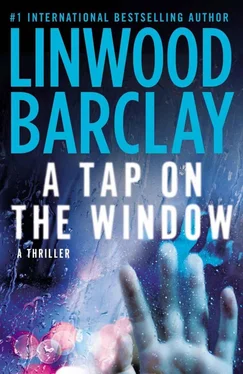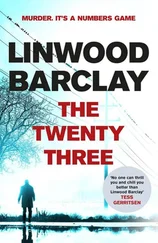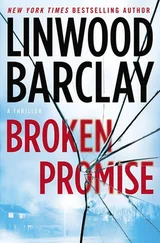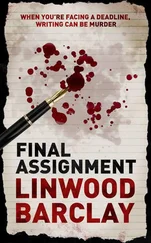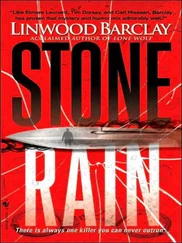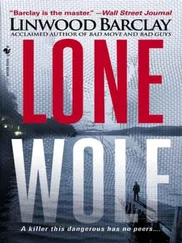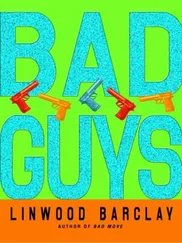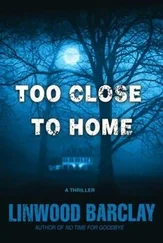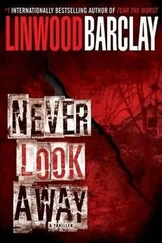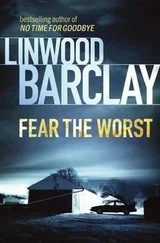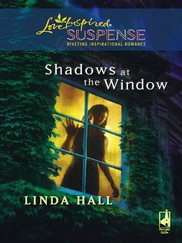As I walked out I tried to get my sore head around what Phyllis Pearce had told me. No surveillance system? That spot out in front of Patchett’s was only steps from where Claire Sanders had tapped on my window asking for a ride. How was that caught on a security camera if the guy who’d sucker punched me was not?
Before I crossed the street to get in my car, I looked for cameras out front anyway. There were none. But hadn’t Haines and Brindle — one of them, I couldn’t remember which — told me that was how they’d been led to my door? That my license plate had been picked up on the bar’s camera when Claire got in?
Had either of them actually said that? Or had they only intimated it? Allowed me to think it when I raised the suggestion that my car had been caught on closed-circuit?
I couldn’t recall how the conversation had gone exactly, and the throbbing in my head wasn’t helping my powers of recollection. But if they had, in fact, told me I’d been picked up on a camera, why had they lied? If there was no camera, what had led them to me? Did they already have Patchett’s staked out? Were they already following Claire?
It wasn’t a stretch to think the local cops might have a cruiser parked across the street from the place now and then, watching for people getting into their cars who were too drunk to drive. Or maybe they had quotas to fill, and picked up the occasional underage drinker to show they were keeping Griffon a safe and decent place to raise our children, even if they were letting Patchett’s serve drinks to minors.
Maybe the cops had been called to Patchett’s earlier for some kind of disturbance, and before they’d left had noticed a teenage girl hitching a ride with a strange man, and had the presence of mind to make note of a plate number. Then, later, when Claire was reported missing, some cop at the morning briefing said, “Hang on.”
I fumbled in my pocket for my keys, hit the remote button to unlock the car, and slid in behind the wheel. I took a glance at myself in the rearview mirror before I closed the door and turned the lights out. My hair was mussed. I combed it with my fingers to the point where I looked moderately respectable.
I was about to turn the key when the two bikers came out of Patchett’s and wandered across the road to the motorcycles parked directly ahead of me. As they were getting ready to swing their legs over like a couple of cowboys mounting their horses, headlights came on about a hundred yards away.
Almost instantaneously, a bank of multicolored swirling roof lights was activated on the same vehicle. A siren whooped for five seconds before the cruiser screeched to a stop beside the bikes.
The bikers stood there and watched as two cops got out of the car. A woman from the driver’s side, a man from the passenger’s. I recognized the woman as Donna’s friend Kate Ramsey. Late thirties, short blond hair, about a hundred and seventy pounds, no more than five six. Chin up, formidable. Her partner I didn’t know, but I guessed he was in his early thirties, five ten, about the same weight as Ramsey, strong chin and cheekbones.
It looked like Kate was going to take the lead here. I put down my window so I could hear.
“Where you boys from?” she asked. She had one hand on the nightstick hanging from her belt.
Biker One said, “What’s the problem, Officer? We do something wrong?”
“I asked a question,” she said. “Where you from?”
“Elmwood,” Biker Two said. A Buffalo neighborhood, and a pretty nice one at that.
“What brings you up to Griffon?” the other cop asked.
“We just rode up for a couple drinks, play some pool,” Biker One said.
“That’d be all you’re doing up here?” Kate Ramsey asked. “You wouldn’t be up here doing a bit of business?”
Biker Two shook his head. “Listen, we just wanted to get some air, do some riding on our bikes. That’s all. We’re not looking for trouble.”
Kate’s partner said, “We don’t need your kind up here.”
“Our kind?” Biker One said. “The fuck is that supposed to mean?”
“It means,” Kate said, “we don’t need greasy, drug-dealing dickheads like you two fucking up our town.”
The first biker moved an inch toward Kate, but the other one held up his hand. “Then I guess we should be on our way.”
“We don’t have to take this shit,” the first one said.
Kate’s partner moved forward, taking the nightstick from his belt. “Oh, I think you do.” He walked around to the front of the second biker’s bike, swinging the stick casually. “What’s a headlight like that run?”
“Come on, man, we’ll go,” Biker Two said. “We’re on our way.”
“And you won’t be back,” Kate said.
“Fine,” the first one said. “Who the fuck would want to come back here anyway? Everything they say about this hick town is true.”
Kate Ramsey and her partner stood there and watched as the two got on their bikes, started them up with a roar, then navigated their way around the Griffon police cruiser. Once they were on the road, one of them stuck his hand into the air and offered up a one-finger salute.
Ramsey and her partner watched until their taillights were reduced to the size of pinheads, then got back into their car and drove away.
I was going to hunt up the Skilling house, but decided that before I did that, it made more sense to find, and talk to, Claire’s father, Bertram Sanders.
I found his address through my smartphone. Sanders lived on Lakeland Drive. I knew Lakeland, but never understood why it was called that. The street neither overlooked nor led directly to any body of water. I was hoping that when I knocked on the door, it wouldn’t be the mayor who answered, but Claire herself. After all, if she’d returned home since the cops had been to see me, there wasn’t anyone who would have felt obliged to let me know.
It was a lower-income, postwar neighborhood. That’d be the Second World War, not the one in Korea, or Vietnam, or the Gulf, or Iraq, or Afghanistan. We’d had so many of them, it was hard to keep track. It was a simple two-story house with clapboard siding, painted brown, and while the place looked narrow from the front, it went back a long way. The house was better maintained than many others on the street, several of which still sported rusted television aerials that probably hadn’t picked up a signal in years. Behind the house, at the end of the long, single-lane drive, stood a separate one-stall garage.
I parked on the street, went up to the door, and knocked. It was past eight and the streetlamps were on, but I didn’t see lights on in the Sanders house. I shielded my eyes and peered through the rectangular window set vertically in the wooden door. No signs of life.
It seemed fruitless, but I decided to walk around and try knocking on the back door, which, once I got there, I could see entered the kitchen. Again I put my eyes to the window and saw that the only light inside appeared to come from a digital display on a toaster. No one came when I knocked.
“You looking for the mayor?”
I turned and saw an elderly woman standing beneath a porch light of the house next door. She had a view of me over the fence.
“That’s right,” I said slowly. “I was hoping I’d catch Bert at home.”
“It’s Thursday night,” said the woman, like I should know the significance of that.
“What’s Thursday night?”
“The night the town council meets. You must not be from around here.”
All the years I’d lived in Griffon, and tonight I felt like a stranger. Everyone pointing out how little I knew.
“It slipped my mind.”
From inside her house, a man shouted, “Who you talking to?”
Читать дальше
